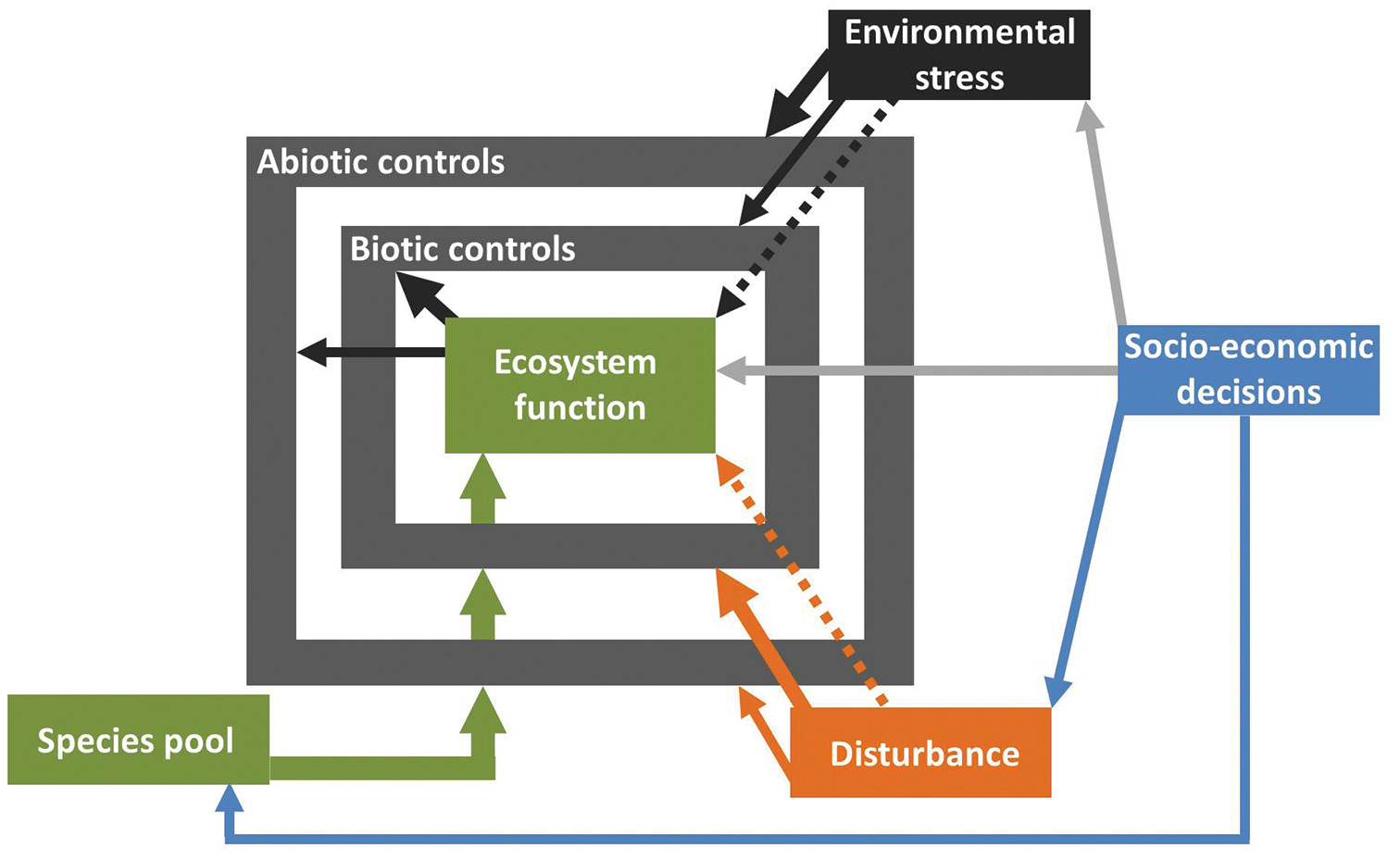
|
||
|
Ecosystem function (including species composition and ecological processes) is controlled by a series of abiotic (e.g. soil type, temperature) and biotic (e.g. species diversity and species’ traits) variables. The abiotic and biotic controls also act as filters controlling the species found at a particular site out of those available from the regional (or historical) species pool. Disturbances, such as managed burning or wildfire, influence both biotic and abiotic variables and therefore ecosystem function. The nature of that influence will depend upon the characteristics of the disturbance regime and the particular ecosystem function of concern. Socio-economic decisions influence the system by impacting directly on disturbance regimes (e.g. via regulation of prescribed burning), the species pool (e.g. by re-introducing locally or regionally extinct species), and environmental stress (e.g. via anthropogenic climate change). Disturbance (fire) effects (orange) were the focus of Davies et al. (2016) whereas socio-economic decision-making (blue) were the focus of Monbiot (2016a). We argue that views in the blue region should not influence the interpretation of scientific data in the orange region. This does not mean socio-economics are not important, but these issues should be addressed in a participatory manner rather than via polemics, which assume one has a monopoly on the “right” answer about ethical, conservation and economic priorities. This diagram was adapted from Halle (2007). |